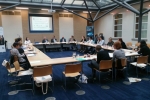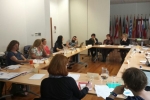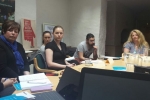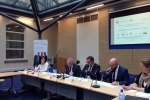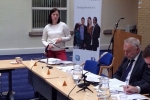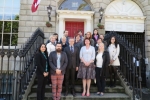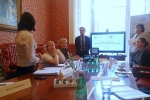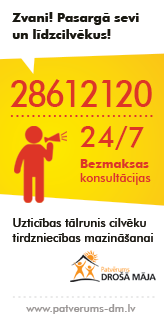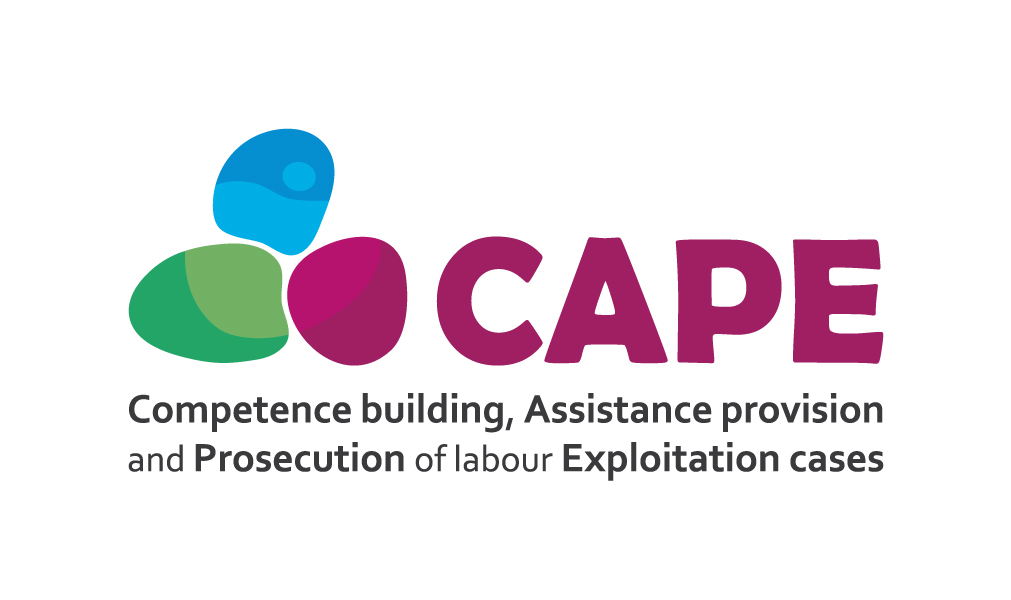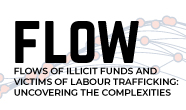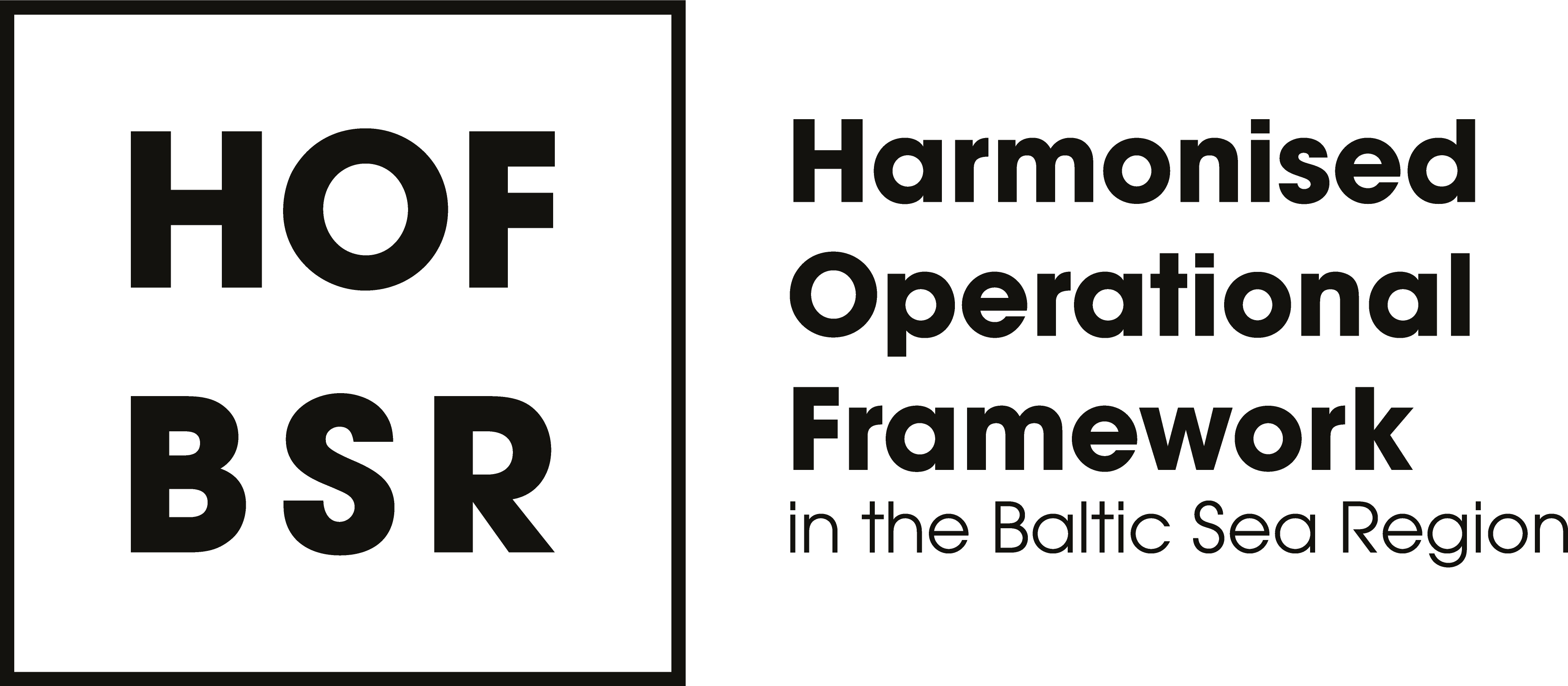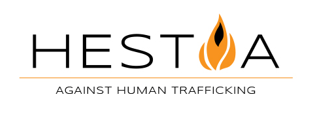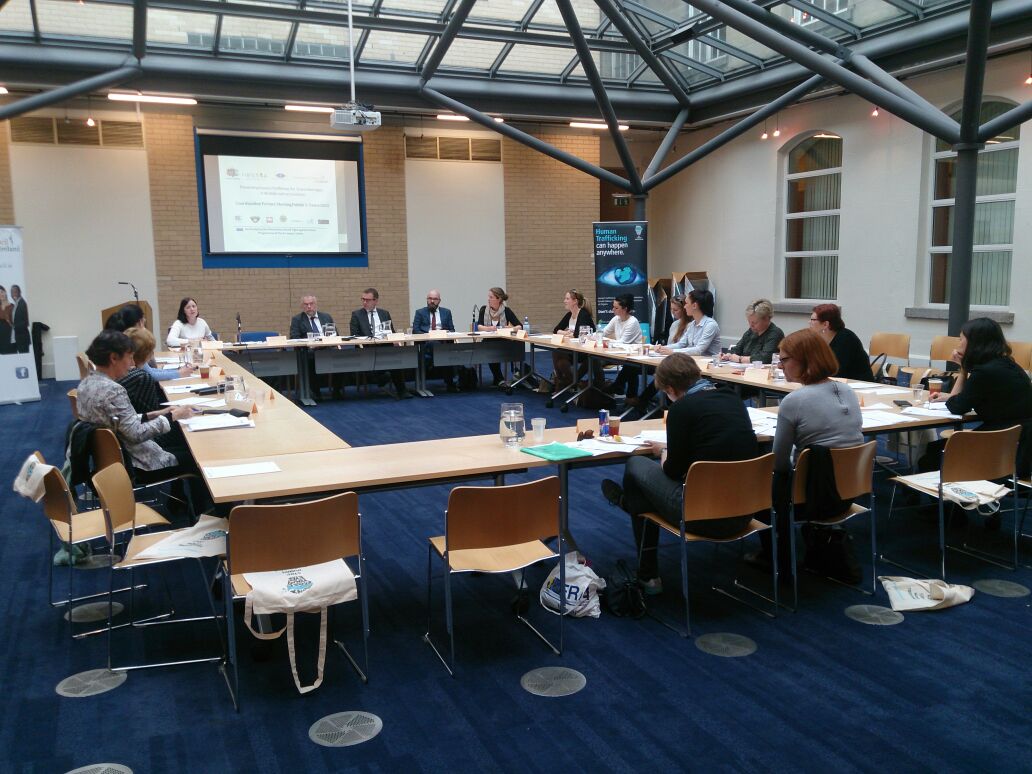
During the first day of the meeting participants concluded that the project partners have no common understanding of connection between sham marriages and human trafficking, because sham marriages are mainly regarded as the violation of national legal regulation related to migration and residence permits.
Ms Lāsma Stabiņa, National Anti-Trafficking Coordinator and the Manager of the project HESTIA: "Having evaluated sham marriages, we concluded that even if a woman is not subject to the exploitation, such a marriage has unintended negative consequences. According to the national regulatory framework of the project partners’ countries, the couple must live in a marriage for at least five years before the marriage can be dissolved. By this time the woman may develop a new relationship in which children are born, but they are legally considered to be the spouse’s children and can be used to bind a woman to sham marriage even more."
Summarizing the views of the member states of the project and different concepts of sham marriages (sham marriage, forced marriage, marriage of convenience, fake marriage, false marriage, bogus marriage, fictitious marriage, exploitative marriage, grey marriage), the participants of meeting agreed that in the framework of the project and until the publication of the project research scheduled for May 2016, the term "human trafficking involving exploitative sham marriage" will be used because right now it reflects the least confusing nature of the problem.
The second day of the meeting was devoted to the acquisition of project research methodology provided by Finnish project partner - HEUNI, which is one of the leading research institutes in the Baltic Sea Region. In order to develop high-quality research, HEUNI project partners offered a single research methodology on the basis of which each partner of the project will develop the national report, reflecting the situation of particular country: national legislation and the legal framework for sham marriages and human trafficking, awareness of nexus between sham marriages and human trafficking analyzing the reasons why the person agrees to go abroad to enter into sham marriages, who are those persons who agree to enter into sham marriages and to become the victims of exploitation.
"In practice human trafficking and sham marriages are difficult to identify, therefore HESTIA project is currently even more topical. There is a need for the description of the situation and problem, which will give a clear answer as to whether the marriages is a form of human trafficking or a mean to involve a person in exploitation, whether it is possible to provide a concrete definition of this phenomenon, whether changes to legislation are required at European level," says L. Stabiņa. "It is expected that the project research will answer the key questions: what are the weaknesses of the system/legislation/administrative procedures that enable trafficking in the context of sham marriages; what are the weaknesses of the system/legislation/administrative procedures that enable trafficking in the context of sham marriages; what can be done to prevent exploitation."
Also Irish Ministry for Justice and Equality noted that a common understanding on this issue will be possible when there will be a clear description of the situation, of what and how happens in the country of origin of the victims and in the country of exploitation. In their view, a comprehensive description of the situation is necessary in order to achieve a common understanding and the research of project HESTIA will provide it.
In order to discuss the topicality of human trafficking and sham marriages, the Ministry of Foreign Affairs of Latvia as an associate partner of the project HESTIA organized the meeting of the project partners in the Latvian Embassy in Dublin on 5 June. The meeting was hosted by the Latvian Ambassador to Ireland H.E. Gints Apals, Counsellor of the Embassy Ms Vija Buša and Senior Officer of Embassy Consular Section Ms Guna Āboliņa, who presented the experience of the Latvian Embassy in this matter.
Since 2004 in Ireland more than 1,600 marriages between Latvian citizens and third country nationals have been registered. Since 2006 nearly 2,000 third country nationals have submitted documents to the Irish Naturalisation and Immigration Service for a residence permit on the basis of marriage with a Latvian citizen (often the marriage was concluded in Pakistan, Nigeria, India or in another European Union Member State - Denmark, Cyprus, Spain, Sweden). Embassy staff found that many of these marriages were concluded with a purpose to create the family and there was no reason to think that they could be sham marriages.
HESTIA project partners: Ministry of the Interior (Latvia), NGO "Shelter “Safe House"" (Latvia), NGO "Mittetulundusühing"" "Living for Tomorrow" (Estonia); NGO "Caritas Lithuania" (Lithuania); Immigrant Council of Ireland (Ireland); Ministry of the Interior of Slovak Republic (Slovakia); European Institute for Crime Prevention and Control of the United Nations (HEUNI) (Finland). Project associated partners: The State Police (Latvia), Ministry of Foreign Affairs (Latvia), Department of Justice and Equality (Ireland).
Within the framework of the project during two years a variety of activities are provided: by the organization of discussions of legislators, policy planners and practitioners at national and regional level in each country a comprehensive research of the problem of sham marriages will be prepared; learning methodology will be developed and training will be implemented during which social workers, social educators, workers of educational institutions, media representatives, state and municipal police officers and representatives of non-governmental organizations will be educated; awareness raising campaigns and final conference of the project will be implemented. Overall, during the activities of the project it is planned to involve and address more than 700 thousand members of the society in six European Union (EU) countries. HESTIA project was launched on 1 January 2015 and will last 24 months.
*Project "Preventing human trafficking and sham marriages: A multidisciplinary solution" (HESTIA) has been funded with support from the European Commission. This publication reflects the views only of the author, and the European Commission cannot be held responsible for any use which may be made of the information contained therein. Grant Agreement Nr. HOME/2013/ISEC/AG/THB/4000005845. #HESTIA_THB
**National and regional meetings - with the aim to define and solve the problems of sham marriages - were held since this year’s February in HESTIA project partner countries - Estonia, Lithuania, Ireland and Slovakia. Latvian national regional meeting was held on March 19, while the four regional discussions in municipalities of Ogre, Kuldīga, Beverīna and Jēkabpils were held in April and May. These activities were carried out by the Ministry of the Interior of the Republic of Latvia and the association "Shelter" Safe House"".
Information prepared by: Rasa Saliņa, Public Relations Specialist of the project HESTIA, e-mail: rasa.salina@gmail.com. Publishing 18.04.2016.




